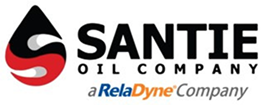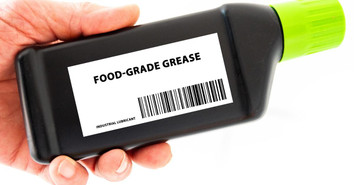Pharmaceutical manufacturing is one of the most highly regulated industries, requiring strict adherence to safety, quality, and compliance standards. Every component of the manufacturing process, including machinery maintenance, must meet these demanding requirements.
This is where food-grade lubricants come into play. These specialized lubricants are essential to maintaining equipment in environments where contamination is not an option. Keep reading to learn more about the importance of using food-grade lubricants in pharmaceutical manufacturing.
What Are Food-Grade Lubricants?
Food-grade lubricants, also known as food-safe grease lubricants, are specifically formulated for use in environments where accidental contact with consumable products, such as pharmaceuticals or food, may occur. These lubricants are regulated by organizations such as NSF International and the U.S. Food and Drug Administration (FDA) to meet stringent standards for safety and performance. Food-grade lubricants minimize contamination risks and maintain machinery efficiency.
Regulatory and Compliance Advantages
Regulatory compliance in pharmaceutical manufacturing is nonnegotiable, and food-grade lubricants play a key role in meeting these standards. Traditional industrial greases contain chemicals that may compromise the integrity of products if contamination occurs, leading to costly recalls, legal actions, and damaged reputations. Oppositely, manufacturers engineer food-safe grease lubricants to meet strict guidelines, such as NSF H1 certification, which guarantees their safety in incidental contact scenarios.
Using food-grade lubricants demonstrates a manufacturer’s commitment to quality and safety standards, aligning with Good Manufacturing Practices (GMPs) and regulatory authorities globally. By choosing NSF-approved lubricants, pharmaceutical manufacturers mitigate risks and establish better control over audit processes, safeguarding their brand reputation and maintaining consumer trust.
The Impact of Food-Grade Lubricants on Equipment and Efficiency
Pharmaceutical manufacturing relies on highly sensitive equipment that requires precise, consistent performance to produce quality products. Manufacturers formulate food-safe grease lubricants to withstand extreme temperatures, heavy loads, and high-speed operations while maintaining integrity over time.
These lubricants protect equipment from wear, corrosion, and contamination and reduce downtime caused by maintenance and repair issues. Efficient machinery leads to higher productivity and operational cost savings, making food-grade lubricants an investment in long-term manufacturing excellence.
Enhancing Product and Consumer Safety
Safety is a top priority in pharmaceutical manufacturing, especially when dealing with products directly impacting human health. Cross contamination, even in trace amounts, can compromise the safety and efficacy of pharmaceuticals. Food-grade lubricants reduce this risk.
Additionally, these lubricants contribute to a hygienic production environment, as they resist microbial growth and comply with the highest sanitation standards. By adopting food-safe grease lubricants, manufacturers can maintain integrity at every stage of the production process.
A Key Investment for the Future
Food-grade lubricants for pharmaceutical manufacturing facilities are indispensable. These lubricants help businesses achieve top-tier regulatory compliance, optimal equipment performance, and uncompromised product safety. Adopting food-safe grease lubricants is not merely a recommended practice but an essential investment in operational success and consumer confidence.

